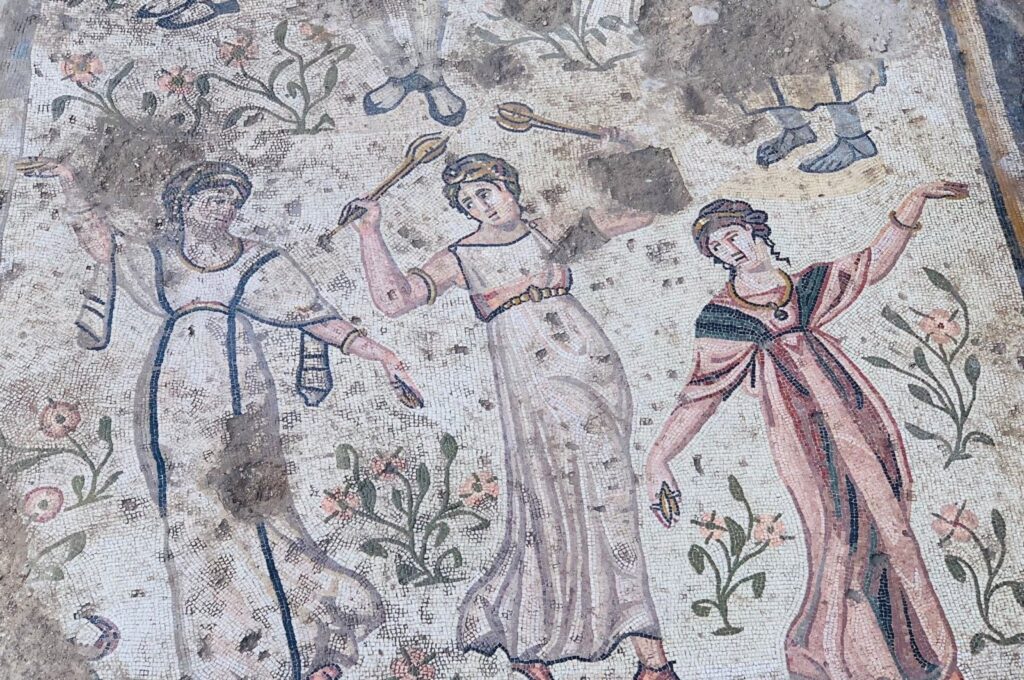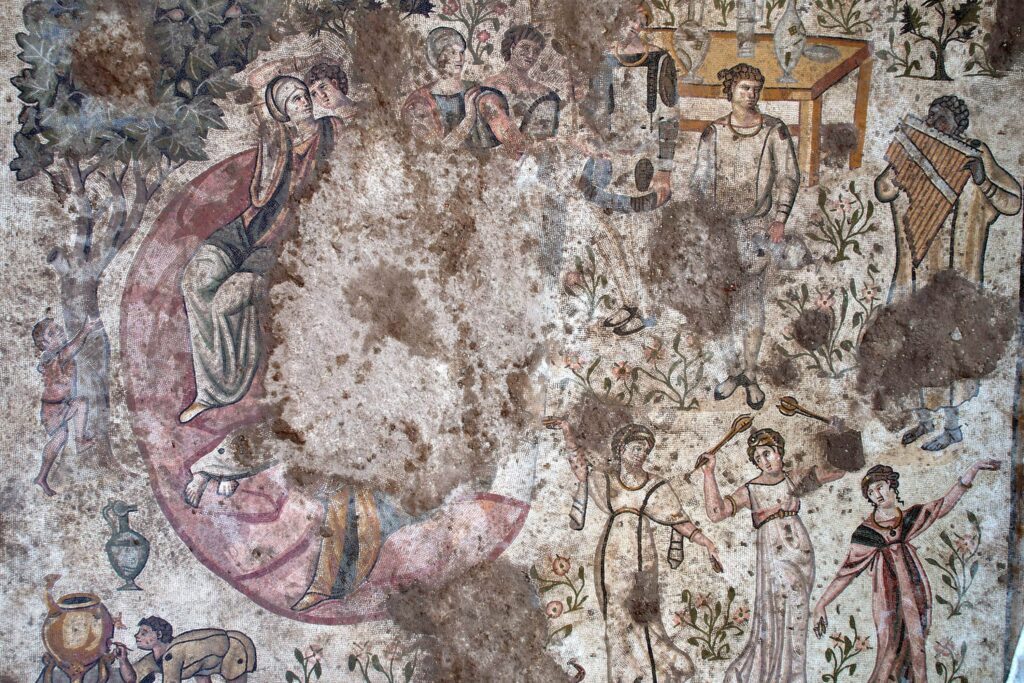1,500-year-old mosaic depicting feast found in Turkey’s Germanicia

During the ongoing excavations in the ancient city of Germanicia located in the southern Turkish province of Kahramanmaraş, a 50-square-meter (around 540-square-feet) mosaic describing an open-air feast and dating back 1,500 years ago was unearthed.
The mosaic, which features a portrayal of three women dancing to music, probably depicts a pre-hunt open-air banquet.
The seventh stage of archaeological excavations in the ancient city of Germanicia in the Bağlarbaşı district has come to an end.

During the excavations, the remains of 1,500-year-old architectural structures, baths and mosaics were found.
Kahramanmaraş Museum Director Safinaz Acıpayam stated that within the borders of the ancient city, archaeological remains have been identified in 35 different areas so far and archaeological digs in seven of these areas have been carried out under the presidency of the Kahramanmaraş Museum Directorate.
“We had previously found a mosaic consisting of two panels depicting hunting scenes in Germanicia in 2015. The newly discovered mosaic is actually a continuation of the mosaic unearthed in 2015. We think it depicts an open-air banquet probably held before the hunt.
There are two couples sitting in the middle center of the mosaic. While three women dance in company with music on it, two male figures in the field make presentations.
There is also the figure of a little barefoot boy climbing a fig tree,” Acıpayam explained.

Stating that the excavations will continue in the area where the mosaic is located, Acıpayam said: “Excavations have not been carried out in the entire area yet. We plan to continue the excavations in the same area in 2022.
At the end of 2022, we plan to open the area where the excavations were carried out in line with the permissions of our General Directorate of Cultural Heritage and Museums.”
The ancient city of Germanicia was discovered in 2007 during illegal excavations.
The expropriation works were carried out for the ancient city in 2008 and excavation and preservation works were launched in 2009.
Archaeological digs have still been ongoing to uncover the ancient city that spans over a 140-hectare (345.95-acre) area.